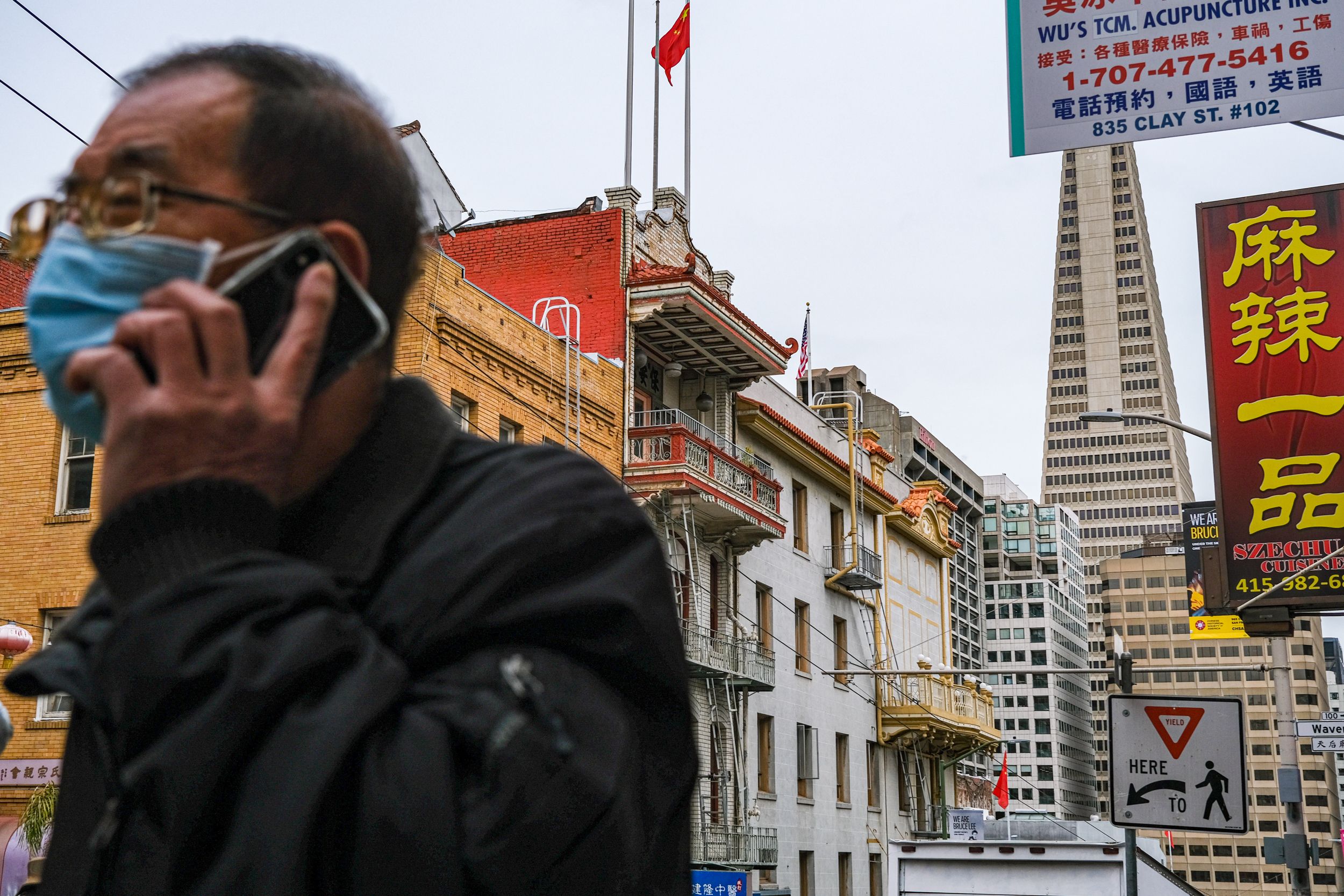As the midterm election approaches, concerns are being raised about right-wing disinformation campaigns targeting Chinese American immigrants on social media.
Ethnic Media Services, a San Francisco-based nonprofit that focuses on community-based and minority media, hosted a press conference Friday about “fake news” in non-English speaking communities and its impacts on shaping the dynamics for the upcoming elections. Asian Americans are the fastest-growing voter group by race in the United States, and their influence is being touted as critical to shaping election results.
“Unfortunately, voters of color and voters who speak languages other than English are often the target,” said Mekela Panditharatne, a legal counsel at the Brennan Center for Justice’s Democracy Program.
When the “demand” for accurate information is greater than the “supply,” Panditharatne said, misleading information more often finds its way to voters. For example, during the pandemic, many were not well-informed about the vote-by-mail policy changes, which led to claims of election fraud.
Social Media’s Role
Specifically, right-wing disinformation on WeChat, a popular social media app widely used by Chinese immigrants, appears to be on the rise.
Chinese for Affirmative Action (CAA), a longtime civil rights nonprofit based in San Francisco’s Chinatown, recently formed a team to monitor Chinese-language social media content and launched a Chinese-language fact-checking website, piyaoba.org, to combat the “disinformation narrative” targeting Chinese-speaking immigrants.
Piyaoba, the phonetic spelling of 辟谣吧 in Mandarin, means the “hub of crushing the rumors.” Similarly, the Latino immigrant community also launched a Spanish-language fact-checking website: factchequeado.com.
As part of its initiative, CAA wrote a report suggesting that disinformation appeared across multiple platforms but mostly on WeChat, followed by Twitter and YouTube. The groups allegedly behind the disinformation are often well-resourced right-wing media groups and individuals holding conservative positions, according to the report.
Additionally, the report singled out a what it called a deceptive type of WeChat operation: lifestyle accounts with political infiltration.
“When conservatives launch political campaigns, [lifestyle accounts] transform themselves overnight to use their large audience to serve the conservative agenda,” the report states.
Xiaoqing Rong, a veteran reporter from the Chinese-language media company Sing Tao Daily, monitors Chinese social media content as part of her work. Rong said misleading information is “running rampant” when it comes to American politics and public safety, and this apparently includes Chinese government interests portraying the U.S. and its democracy as collapsing.
“A lot of discussions happen in the [WeChat] chat groups, which are all private,” Rong said.
CAA found that some of the most widely circulated disinformation campaigns focused on national politics, such as stories deeming the 2020 presidential election stolen and a White House spokesperson calling Asian parents who oppose affirmative action “extreme” and “ultra MAGA.” Other narratives showcased in the study focus on abortion rights, gun violence and the side effects of vaccines.
Conservatives Push Back
Local conservative leaders have pushed back on CAA’s report and claims that the disinformation is only coming from one side of the political spectrum.
Ellen Lee Zhou, a former San Francisco mayoral candidate and Trump supporter who attended the Jan. 6, 2020, rally in Washington, D.C., is an avid user of WeChat and Twitter. She said that WeChat is heavily censored by the Chinese government while also filled with Democratic Party-controlled media.
“People are misinformed, misled and brainwashed,” Zhou said, adding that she plans to continue to use the social media platforms to promote a “patriots” agenda. Zhou has filed papers to run for mayor again in 2023.
A former public health worker, Zhou is also a strong critic of vaccines on her social media platforms. She told The Standard that she was suspended from her Department of Public Health job because she didn’t get vaccinated and the city has a vaccine mandate for public employees.
The city’s Department of Human Resources confirmed that Zhou stopped working for the city since late September.
John Dennis, chairman of the San Francisco Republican Party, accused the CAA’s report of amplifying Chinese Communist Party propaganda.
“If CAA were a serious organization,” Dennis said, “they would focus on the attacks on the Chinese community, which seem to be committed by criminals inspired by left-wing media narratives.”
Public Safety Perceptions
The Stop Asian Hate movement was launched in 2020 in response to attacks on the Asian American and Pacific Islanders (AAPI) community, and for many, public safety and hate crimes have become a top concern.
While crime in 2022 is up from the last couple of years, that was mostly due to people staying home during the pandemic. In most cases, crime in San Francisco is currently hovering around pre-pandemic levels. But that might not be apparent to many receiving their news through social media.
Panditharatne suggested that voters should be careful when they see information that seems suspicious or “particularly emotionally charged.”
“You can try to get a better context from authoritative and trusted sources,” she said. “It’s generally a best practice not to amplify misinformation by reposting it online.”
